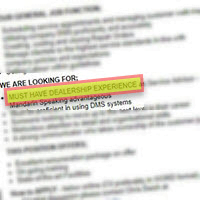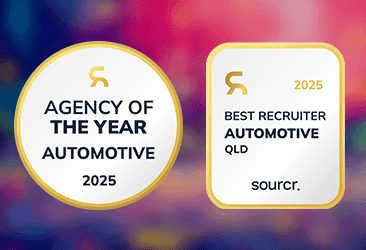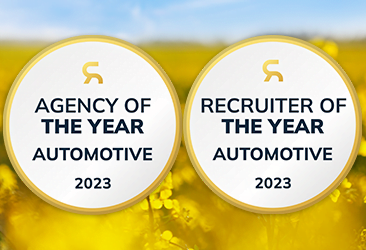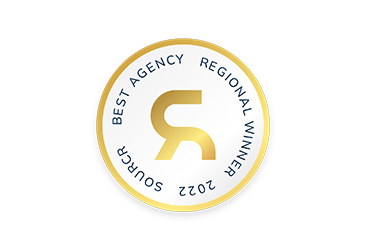For years, the reference check has been seen as a final, often perfunctory, step in the hiring process: a simple box to be ticked. However, in the demanding and specialised world of heavy equipment dealerships, this is a risky approach to take. In 2025, the reference check has evolved into a critical, strategic, and deeply ethical component of a modern recruitment strategy.
A mis-hire in our industry can be incredibly costly. The impact goes far beyond the initial recruitment fees and salary, it includes lost productivity, disruption to your team, and the time and resources wasted on a subsequent hire. Research from the Society for Human Resource Management highlights that nearly one in five new employees leave a role within the first 45 days, often due to a poor fit that a comprehensive reference check could have identified.
For Teamrecruit’s clients, a well-executed reference check is a vital line of defence. It’s a strategic investment in talent retention and workforce stability. The true value lies not in simply verifying a resume but in gathering ethical, honest insights that interviews alone can’t provide.

The ethics of the reference check: consent, honesty, and trust
The foundation of an effective reference check is trust, and that starts with your interactions with the candidate.
Honouring consent
It’s not only a legal requirement but an ethical one to obtain explicit, written consent from a candidate before contacting their references. This practice signals transparency and respects the candidate’s privacy, setting a positive tone for your hiring process. It also ensures the candidate can prepare their referees, leading to more candid and useful conversations.
Navigating "no reference" policies
A common challenge in modern recruitment is the corporate “no reference” policy, where a former employer will only confirm dates of employment and job title due to a fear of lawsuits, such as defamation. This risk-averse practice leaves prospective employers with a significant information gap, lacking the critical performance insights needed to make an informed hiring decision.
This widespread practice necessitates a strategic and ethical adaptation on the part of the hiring employer. One effective solution is to ask the candidate to provide references from former colleagues or supervisors who have since left the company. These individuals are no longer bound by the former employer’s policies and are often more willing to provide honest, detailed feedback. They understand the difference between providing a truthful, professional assessment and making defamatory statements. Another option is to use a professional reference-checking firm, as these companies often have methods for drawing out information from cautious referees, particularly during a verbal check.
By taking these steps, you can still gain the candid, third-party insight you need to make a confident hiring decision.
The art of eliciting candid feedback
A well-executed reference check is a conversation, not an interrogation. It requires a balance of structure and personalisation to ensure fairness while still gathering meaningful insight.
- Beyond yes/no answers: Use open-ended questions that prompt detailed, narrative responses. Instead of asking, “Was the candidate a good worker?” ask, “How would you describe the candidate’s dedication to their job and their overall job performance?”. This approach allows the referee to tell a story and provide a more balanced, honest assessment.
- Seeking specifics: Push for specific examples. When a referee says a candidate is “a great team player,” follow up with, “Can you provide a specific example of a project where the candidate demonstrated strong teamwork?” This method helps you gather rich, behavioural insights that are a better predictor of future performance than generic praise.
Detecting fraud: a matter of fairness and integrity
The integrity of the hiring process depends on the honesty of all parties. Detecting fraudulent references is a moral obligation to ensure you’re being fair to other, more honest candidates.
- Red flags to watch for: Be wary of referees who provide vague or generic responses, have inconsistent details with the candidate’s resume, or are overly positive without mentioning any areas for improvement.
- Procedural verification: Go beyond simply accepting the name provided. Verify the referee’s identity by cross-referencing their job title, employment dates, and contact details on professional networks like LinkedIn. For a candidate you’re seriously considering, it’s a best practice to ask for written permission to contact a manager or supervisor from a previous role who may not have been on the provided list.
A roadmap for modern recruitment
The act of conducting a reference check in 2025 is a multi-faceted exercise in legal compliance, strategic recruitment, and ethical risk management. By prioritising consent and transparency, adopting a strategic mindset, and tailoring your approach to the specific roles within your dealership, you can transform the reference check from a historical formality into a powerful, predictive tool for attracting and retaining the best talent. Investing in a robust, fair, and comprehensive reference checking process is one of the most effective ways to protect your business and build a high-performing team.
Teamrecruit is Australia’s most established recruitment agency specialising in truck, earthmoving and agricultural machinery dealerships in Australia, New Zealand, the South Pacific and Southeast Asia. Find out more about Teamrecruit and how we support employers and candidates in the dealership industry.











































































